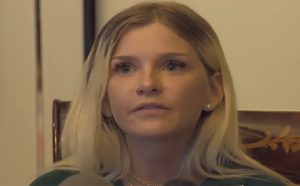Exposure to explicit sexual violence doesn’t mean teenagers will be prone to copying it in the bedroom
Did watching The Truman Show aged eight leave me a paranoid, arrogant, obsessive maniac? Of course it did. For about a week, until A Bug’s Life came out and I decided I wanted to be an ant instead of a reality TV star.
I was reminded of my younger flips last week when a report was published into the effect pornography has on teenagers’ understanding of sex. Do they now consider the relentless, submissive and aggressive nature of pornography normal practice? Pretty worrying if so and the study released by the Children’s Commissioner for England suggests this might be the case.
According to the research, access to pornography is directly influencing how young people treat each other sexually and exposure to it can be linked to a rise in sexual violence. It’s fantastically hard to quantify how much the nameless, manicured people groaning and grunting on the internet can change the way sexual behaviour develops, so we rely on studies such as these.
And even the slightest probe into the effect of porn on young people is likely to leave you pummelled with information that generally translates as “the horror, the horror”.
If we’re looking for porn to get worried about, there’s certainly plenty of it about. The infamous video from musician and actress Sasha Grey, where she pretends to be unconscious for 20 minutes while she’s “interfered with”, is only one wretched example.
These videos are definitely not the naughty magazines from our parents’ generation; they’re hardcore, unrestricted and free for anyone who knows how to use the internet (which is everybody from about seven upwards).
I find the idea of porn a bit unsettling. The fact that a huge number of people watch countless explicit videos before they have any sexual experiences of their own introduces a kind of sexual voyeurism, which may certainly encourage a dissociation between sex and relationships. But it’s a bit of a leap to then argue that teenagers are unable to tell the difference between porn and reality.
I’m actually quite bored by people referring to porn as this “fantasy” that leaves men dissatisfied with the reality of sex. Show me these horrible men and I’ll find 100 other things they’re dissatisfied with. As a teenager – and as a 23-year-old, teenage feels not that far away – real-life sex is not something you stop to analyse midway through.
Sure, it’s an absolute minefield of potential disappointment and rejection, and anything else you can write pages and pages about in the back of your English exercise book, but for the majority of people I’d be amazed if it wasn’t just about the most immersive activity possible.
The fact that some girls feel pressured into recreating pornographic behaviour is a sad truth, and one that needs urgent attention. But you’d be a fool to believe sexual insecurities were invented with the internet.
In an era when people watch upwards of 20 hours of TV a week (on conventional screen or otherwise), if we start assuming that everything we see drastically affects our development, then surely internet porn is just the start.
Should we be worried that our personalities are being attacked every time we stream a television show? Are today’s teenagers simply a collection of fragments of YouTube videos and Judd Apatow films? I don’t think so.
We need to be careful about underestimating the intelligence of young Britons.
On the one hand, there’s providing support and education for vulnerable people who need to understand pornography does not reflect the reality of sex, and on the other, there’s assuming anyone who’s been on YouPorn before the age of 18 is going to bear the psychological scars for a lifetime.
I’m loath to remind you that this is – cliche alert – the digital age: yes, we’re bombarded with content from every angle, but that doesn’t need to be as scary as we might lead ourselves to believe.
Yes, pornography can be disturbingly graphic, but teenagers didn’t jump in an arena and start trying to kill each other after The Hunger Games came out last year. A lot of young people watched that film and a lot of them were able to draw the line between fantasy and reality.
Ultimately, what it boils down to, as these things often do, is finding a balance. We can appreciate that horror movies don’t incite widespread sadism, so why shouldn’t we treat pornography and sexual violence the same way?
Of course it is of absolute importance that young people are taught about pornography; sex education will be failing thousands of children if it fails to recognise that. But before we start desperately trying to shrink the infinite territory of the internet, let’s cut ourselves a break.
Yes, the majority of teenagers will almost certainly watch porn; they may also have underage sex, take stupid drugs and drink until they can’t see.
Then, at some point, they’ll fall in love and realise the world is a dark and unforgiving place in which the frenzied absurdity of pornography holds absolutely no relevance. And then they’re us. And suddenly, it’s a whole lot less frightening.






